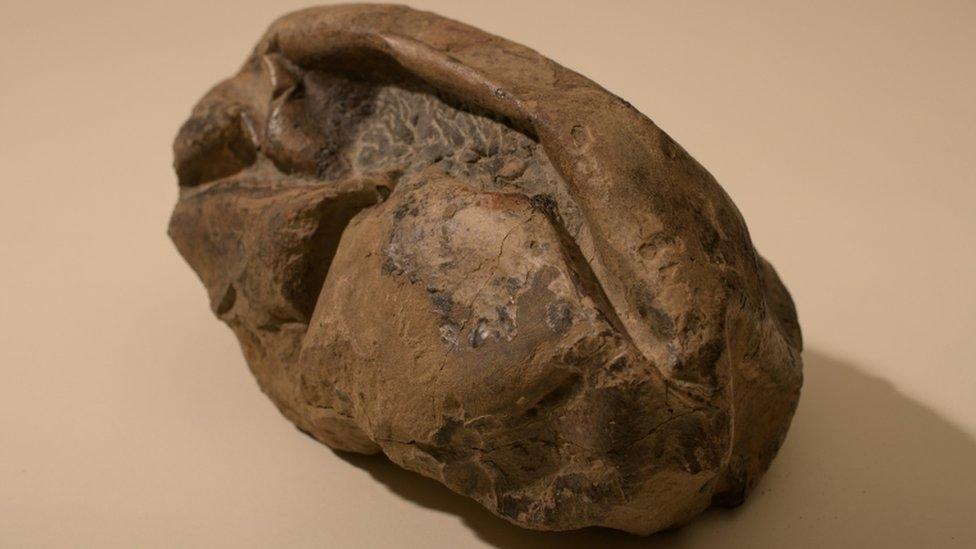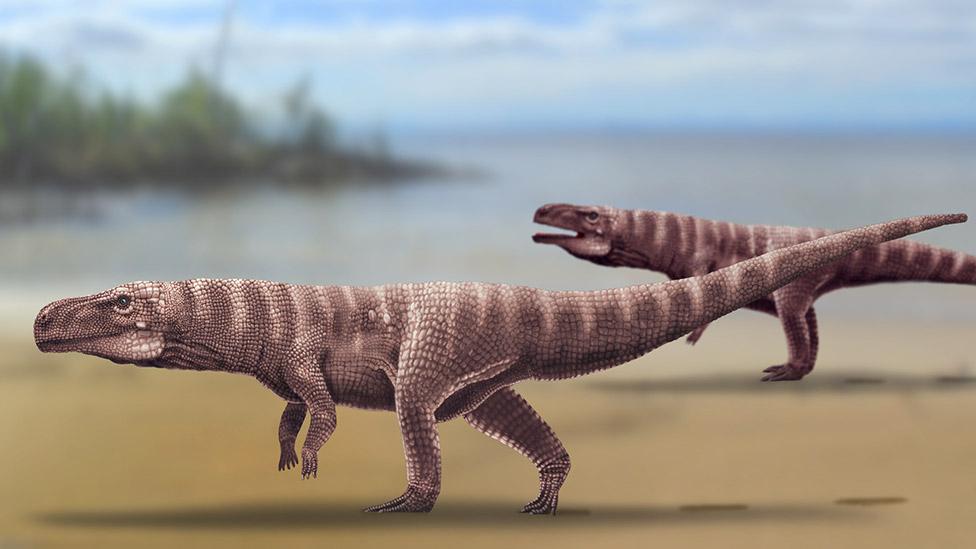Mystery egg likely belonged to giant sea reptile, scientists say
- Published

Scientists in the US have uncovered the mystery of a giant egg discovered in Antarctica almost a decade ago.
For years researchers could not identify the fossil, which resembled a deflated football, leading it to gain the sci-fi nickname "The Thing".
But now, scientists say the egg probably belonged to a giant sea reptile that lived around 68 million years ago.
It is the believed to be the world's largest reptile egg.
The fossil - which measures 11 by 7 inches (28cm by 18cm) - was found by researchers from Chile in 2011, but it was only in 2018 that a scientist from the University of Texas at Austin recognised it could be a deflated egg.
While the size of the egg suggested it belonged to an animal the size of a large dinosaur, its soft shell was "completely unlike a dinosaur egg", Lucas Legendre, a postdoctoral researcher at the University of Texas at Austin, said, external.
"It is most similar to the eggs of lizards and snakes, but it is from a truly giant relative of these animals," he said.

By comparing the size of hundreds of reptiles alive today and their eggs, researchers say the animal that laid the egg would have been at least seven metres long.
Other fossils found at the same site suggest the egg could have belonged to a giant marine reptile called a mosasaur, although it is unclear whether the egg was laid on land or at sea.
The study was published in Nature, external this week.

You may also be interested in:
The asteroid that wiped out the dinosaurs hit Earth at a particularly lethal angle, scientists say
- Published11 June 2020
